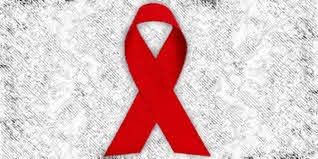Mrs Gloria Ogodo, a board member of International Committee of Women Living with HIV/AIDS in West Africa (ICWWA), has said the emergence of COVID-19 pandemic was hindering the availability and accessibility of Antiretroviral drugs (ARV) drugs.
“So much attention is paid to the COVID-19 pandemic with little or no time or resources for People Living with HIV/AIDS (PLWHA). At the peak of the pandemic, flights were banned which caused a huge shortage of ARV” Ogodo told the News Agency of Nigeria (NAN), on Sunday in Abuja.
Ogodo, who is also the Financial Secretary of Association of Positive Youths Living with HIV/AIDS in Nigeria (APYIN), appealed to the Federal Government and stakeholders to ensure availability of, and accessibility to, ARV.
“Government must sit up to its responsibilities. The ban in flights at the peak of the COVID-19 pandemic hit PLWHA hard because 80 per cent of the ARV consumed in Nigeria comes from foreign donors. COVID-19 affected us so badly to the extent that we ran out of second and third line drugs. As we speak, second and third line drugs are out of stock and what we are saying is that COvID-19 has been a problem; it has taken all the attention. Little or no attention is going to ARV treatment or the guideline that we have to get vision 1990,90,90 target by 2030, or eliminating HIV/AIDS in 2030. I am not seeing the possibility of us achieving the dream with the way we are going because, on daily basis, people are dying as there are no drugs on ground”.
Ogodo maintained that the only way the country could come out from the grim situation was for government to “put on a human face and give more attention to those infected who are on treatment”.
She added that government should also ensure more people went for HIV testing and treatment in well equipped facilities while more routine tests should be encouraged.
“Sometimes when one goes for test, one is told that there are no reagents. In some cases, one is told that there are no machines or that the machines are bad. If I have to do it outside the government facilities, it is usually very costly. We must sit up otherwise COVID-19 and its effects will wipe out all gains recorded in the handling of HIV/AIDS. We all know that people living with HIV/AIDS are more vulnerable to COVID-19. You can imagine the population that are infected with HIV/AIDS. If the same population is also exposed to COVID-19, the country is finished. So attention must return to people living with HIV/AIDS. Let there be focus. Let there be availability of drugs that must be accessible. Routine checks should be taken more seriously”.
She also stressed the need for community involvement in the fight against HIV/AIDS.
“The International Committee of Women Living with HIV/AIDS has set up a team to check overcrowding in hospitals. We came up with what is called ’Community Pharmacist’ where some of us volunteered to go to the facility, bring out the list, check out the people that are on drugs, those on appointment, pick up their drugs and give them at their door steps. We are doing it to reduce the crowd and make sure they are not at risk of contracting the COVID-19 pandemic. So, if government does same, it will avoid crowded environments and reduce the risk of exposing PLWHA to other diseases. But, generally, the main focus should be on getting drugs and making them available, while other opportunistic infections should also be treated immediately they are noticed”.
She also made a case for the PLWHA at the state levels, and particularly decried the attitude of healthcare workers.
“The attitude of the workers at the state levels is not encouraging enough. They get careless and hostile which affects the people coming to receive treatment. We are privileged to receive our treatment in Abuja where we are free to discuss as we are doing now. You dare not try that in some states where the stigma rate is very high, where people cannot come out boldly and say this is who I am. So, we need to work down to the grass root. Let the government also engage the community leaders, the religious leaders, the gate keepers, the commercial motorcycle riders, among others. Let them be sensitised. Awareness must be created. You don’t stop in urban areas. Let it go down to the rural areas and let us see how things work out because the community has to be fully involved in terms of delivering services. The health workers’ attitude needs to be checked because some times when you report, they hardly care because they will always receive their salaries as government workers. But if they are aware that there will be consequences for their misbehavior, they will be more serious about their responsibilities. Many patients hardly go to access the treatment because they fear that they may be insulted. Government must look into this”.
Ogodo called for the enforcement of the anti-stigma Act “so as to have a better HIV/AIDS response in Nigeria”.

